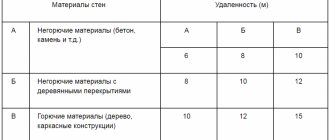Privatization is a very common procedure by which a person who has completed a number of legal operations can obtain land, an apartment, a house or other real estate into his own possession. That is why it is most often used to purchase land.
But when registering land, the question often arises: “Is it necessary to privatize the dacha that stands on it?” And is it necessary to privatize the buildings that will be erected? And if it is necessary, then how to do it? Our article will answer these questions.
Is it necessary to privatize the dacha?
This question usually arises among owners of buildings on a summer cottage, when the land has already been privatized and belongs to the owner according to official documents. Experts argue that this needs to be done, especially since the dacha amnesty, valid until 03/01/18, allows this to be done quickly and without any problems.
As for the situation when neither the plot nor the house on it is privatized, and citizens use the property, for example, under a social tenancy agreement, then after 5 years of no action by the owner, this property becomes the property of local municipal authorities, so they have every right ask to vacate the occupied territory.
Why privatize a summer cottage?
Privatization of such real estate is the registration by the summer resident of ownership of state land provided by the municipal authorities. This procedure is not mandatory, but still, if the summer resident has plans for this land, then it is necessary.
You need to privatize a garden plot in order to have the right:
- Carry out any legal transactions with the site.
- Rent out the cottage.
- Pass it on by inheritance.
Privatization procedure
A summer cottage is a favorite vacation spot for many citizens. After the dacha has been purchased, you should not hesitate to formalize its privatization, since this action will not only make the buyer the full owner of the property, but will also provide the opportunity to dispose of it at his own discretion.
All individuals who do not own property can apply for privatization rights. Any immovable object on a summer cottage can be registered as ownership if it is not in disrepair and is not an office premises.
The privatization of dacha buildings is carried out by a special service under the local administration of the locality where the property is located. The privatization process is a rather troublesome task, requiring numerous procedures :
- First of all, it is necessary to resolve the problem with the land on which the building is located. When purchasing land, the owner registers it in his name and then takes possession of the site. He automatically becomes a member of the dacha cooperative, which gives him the opportunity to privatize the dacha for free. Membership in the cooperative is confirmed by a book, which is issued to the owner of the land by the management of the cooperative.
According to the legislation of the Russian Federation, it is possible to privatize only those land plots that were received for use before 2001. In addition, there are lands that are prohibited from privatization (Article 27 of the Land Code). Read more about how to buy land from the state.
- It is necessary to draw up the boundaries of the land plot. The cadastral chamber is responsible for drawing up this document. The owner makes an application, cadastral engineers go to the site and take the necessary measurements. After a set time, the owner receives a cadastral document with a description of the object and designation of its boundaries. The passport must be signed by the head of the board of the summer residents' cooperative. The owner can independently draw up a description of the boundaries of his site, but in this situation it is wiser to leave this to specialists. Read more about registering a land plot with cadastral registration here.
- The owner of the plot must contact the local Department of Land and Property Relations with an application for the privatization of the dacha building. Documents must be attached to the application in accordance with the established rules.
The Department is given up to 2 weeks to review and prepare privatization documents. During this time, additional documents may be required from the owner, depending on the specific conditions of registration. After the Department issues the documents, the dacha owner transfers them to Rosreestr for final registration. Rosreestr registers a citizen's right to a dacha building and land and issues an extract from the Unified State Register of Real Estate, officially confirming this fact.
It is recommended that you first familiarize yourself with the legislative acts covering the privatization process or consult a lawyer. The laws contain all the rules and regulations according to which a summer cottage and buildings on it can be transferred into ownership according to a simplified scheme, after which they can be disposed of at their own discretion.
Advantages and disadvantages of privatization
Despite the fact that privatization is a mandatory procedure for all owners of garden plots, it has its advantages.
These include:
- gaining the opportunity to dispose of property based on your needs, including selling it, donating it, exchanging it or breaking it into shares;
- the state does not have the authority to take away land from a subject that is being privatized, including to compensate for debts on membership fees;
- The land plot can be used for buildings of any purpose: residential, commercial, temporary.
There are disadvantages only when the site is not registered as a property:
- Fraudsters often falsify membership books and try to take possession of property, which they often succeed since there is no confirmation of the right to land;
- if the dacha plot is not used for 3 years, it is transferred to another tenant;
- non-privatized plots are prohibited from being used for construction; accordingly, all structures erected on them will be subject to demolition.
The benefits of amnesty overlap with the regular procedure, but it is worth mentioning as it is a more popular trend for 2021.
These include:
- the opportunity to register for permanent residence at the dacha;
- obtaining protection of property interests;
- There is no need to register to obtain a cadastral number.
Construction and disposal of the garden plot at the owner’s own discretion are also available.
There are not many disadvantages, but they are also worth mentioning:
- in the process, the boundaries of the site are of great importance and sometimes they are divided incorrectly, as a result of which it may be necessary to challenge this fact through the court;
- after the privatization process is completed, the owner will have to pay tax.
The so-called dacha amnesty is relevant for plots that are part of communities or partnerships, mainly with a security zone in the middle. People often live in such areas on a permanent basis.
Required documents
To carry out the privatization procedure, the owner of the dacha must provide a package of required documents :
- application according to the established form;
- copy of passport;
- cadastral plan of the site;
- documents that confirm ownership of the land and buildings on it;
- technical passport for real estate objects located on the site.
The application for privatization has a standard format and contains the following points:
- name of the authority to which the application is submitted;
- applicant details: full name, residence and registration address, contact details;
- a request for the transfer of ownership of the building with reference to the Federal Law “On the Privatization of Housing Stock” indicating the address of its location;
- list of documents attached to the application;
- signatures of all alleged owners with transcripts;
- date of application.
You can download a sample application for privatization of a dacha here, and a sample application for privatization of a plot of land for a dacha - here.
The deadline for processing documents may be extended if the applicant has completed the application incorrectly or provided an insufficient number of documents.
Filling out the declaration
The next step is to submit a declaration to Rosreestr. You will be given a form directly at the department, but you will need to prepare to fill it out. A declaration is a kind of questionnaire in which you will need to enter data on the real estate located on the site that needs to be privatized. The following values are included in the declaration:
- Type of registered property;
- Address of the location of the site where it is located;
- Construction area (measured either by a specialist or independently);
- The number of the land plot indicated in the cadastral passport;
- The number of floors, as well as some other characteristics, for example, construction material;
- The presence of any technical systems (electricity, plumbing, etc.).
Attention!
Pay special attention to filling out the declaration, since many of the information that you provide yourself and are not contained in the technical documentation will play a very important role. And at the same time, no one will check them during privatization. So in case of an error, all responsibility falls entirely on you.
Duration and cost of the procedure
The dacha privatization procedure does not require capital investments, but the owners must pay a state fee for registration and review of documents. Its amount does not exceed 200 rubles when preparing documents for a summer cottage plot, for garden plots - 100 rubles.
The deadline for free registration of ownership of all types of real estate for citizens of the Russian Federation has been extended until March 1, 2021. The period for free privatization of land under structures has been extended until December 31, 2020.
The procedure for privatization is simplified as much as possible for owners in the Federal Law on privatization. The new legislative act was called the “dacha amnesty.” It was introduced to facilitate and speed up the process. The state, in turn, will receive additional revenues to the budget from paying real estate taxes.
Duration of the procedure for reviewing documents for registration:
- privatization in the Department of Land and Property Relations at the municipality - 2 weeks;
- production of a cadastral passport – 1 month;
- registration with Rosreestr – 10 days.
The deadlines may change upward if the applicant made errors in the preparation of documents or specialists have other questions that will require time to resolve.
In general, privatization of real estate on a summer cottage can last 6-8 months. The duration of the procedure depends on the correct execution of the sequence of actions by the owner, compliance with the rules for collecting documents according to the list, and the correctness of the application.
How to start the dacha privatization procedure?
You have made a decision - to privatize a dacha building or a plot of land. The question immediately arises - where to turn? What structures are involved in the transfer of property rights to real estate?
Before knocking on the thresholds of government departments, it is necessary to collect a package of documentation - cadastral documents for the allotment can be obtained from the chairman of the dacha cooperative if you have a garden community membership card.
It is necessary to provide documentation for dacha construction - a cadastral passport or technical plan. Make photocopies of documents in advance; they will be required for registration in the future. As soon as you collect the necessary documentation, fill out an application and contact the administration.
Privatization using a garden book
After registering ownership of a dacha plot, citizens automatically become members of the dacha cooperative. Evidence of this is the dacha book, which is issued to the owners by the board of owners. It confirms the fact of membership in the cooperative, characterizes the plot of land, and subsequently records all tax payments.
The “dacha amnesty” gives the owner the right to submit documents for the privatization of a dacha on the basis of a garden book. In addition to this, other available documents for the land and house, a copy of the owner’s passport and a receipt for payment of the state duty are provided. It is believed that the garden book contains enough official information about the land plot and the buildings on it to serve as the basis for making a positive decision on privatization.
In addition, the applicant must provide a certificate that confirms ownership of the land, according to the garden book, and contains a diagram of the land plot. This certificate is issued by the chairman of the board of the dacha cooperative.
Dacha amnesty as a way of privatization in 2021
The entire process of privatizing a garden plot has been simplified. Now it is called “dacha amnesty” and is carried out in an accelerated system. In 2021, the number of bureaucratic issues that need to be resolved has been significantly reduced. To confirm the right to own a dacha plot, the subject must go through the state registration process.
A special feature of the dacha amnesty is the ability to register real estate in different quantities. Regular privatization can only be carried out once. The right to privatization is dictated by the laws of the Russian Federation on privatization and state registration. In 2021, the latest news makes popular the “dacha amnesty”, which interpreted the Federal Law on the privatization of dacha plots No. 171.
Possible difficulties
Difficulties may arise during privatization, despite the fact that the “dacha amnesty” has significantly simplified the process:
- The external boundaries of the land plot have been violated, and information about the area of the plot does not coincide with the cadastre. In this case, you will have to re-register the documents at the cadastral chamber.
- The horticultural partnership, as a legal entity, does not comply with the requirements imposed on it, for example, it violates fire safety and sanitary standards.
- Failure to pay SNT taxes or fines.
- Violations in SNT documentation: about the presence of land users, information about areas, unreasonable registration of excess areas, etc.
If there are violations on the part of the board of the dacha cooperative, privatization may be refused, but the owner can appeal the refusal in court. Refusal due to the fault of the owner may be due to incorrect execution of documents, insufficient number of documents, or non-payment of state duty.
The Department of Land and Property Relations at the municipality of the locality, which is responsible for registering ownership of dacha plots and buildings on it, has the right to refuse privatization to the applicant. The refusal must be made in writing on official letterhead. It must indicate the reasons for the refusal, the document is signed by an official and supported by the department’s seal. With this document, the applicant can apply to the court to appeal the decision that, in his opinion, is unauthorized.
The refusal and its reasons should not be irremovable, therefore, most often, going to court becomes a last resort for the applicant. Typically, citizens eliminate shortcomings on their own and put documents in proper order. To avoid refusal, you should be more careful in preparing documents: pay attention to their relevance and reliability, completeness of information.
Before going to court, the law suggests resolving the controversial issue pre-trial, that is, filing a complaint with a higher authority - the territorial division of the State Property. The complaint is given 15 days to consider. Thus, the pre-trial procedure for resolving the problem is observed, and the case does not come to trial.
How much does it cost to privatize a land plot?
By law, you don't have to pay anything. A citizen must become the owner of hundreds of acres, which he has rightfully been using for a long time, absolutely free of charge. But in practice everything may turn out differently. If the administration refuses, you will have to make legal demands in court. And these are expenses not only for the preparation of documents, but also for legal support, which determines the cost of privatization of a land plot.
For the court hearing, the lawyer recommends preparing papers, upon consideration of which the court will not have grounds to refuse the plaintiff. In addition to the title documents for the house, you need receipts confirming payment of land tax. Documents for the previous owner and certificates from the archive about securing the land will be useful. The court may order a land survey to determine the boundaries of the territory. And the plaintiff will also have to pay for this examination. Only after receiving a complete understanding of the disputed land plot and an expert decision, the court can recognize the right of ownership of a citizen.
“Pre-trial privatization is free, but in court the cost of legal assistance varies between 150-200 thousand rubles,” said lawyer Yulia Lotova.
The legislative framework
All questions about privatization are reflected in special regulatory documents:
- Federal Law No. 178 of 12/21/2001
- Federal Law No. 66, 2002
- Federal Law No. 93 dated June 39, 2006
- Federal Law No. 101 “On the turnover of agricultural land”, 2002
- Civil Code of the Russian Federation (Article 209, Article 129)
- Land Code of the Russian Federation No. 136 of October 25, 2001 (Article 39.36)
Legislative acts provide that land plots and buildings located on them must be privatized. At the same time, building owners received the right to a special procedure for privatization.
Reasons for refusal
In some cases, the authorities may refuse the applicant privatization. The reasons for this may be:
- errors or inaccuracies in the application;
- lack of documents;
- the applicant has already privatized another plot of land;
- The site has already been taken out of use.
In the first two cases, the applicant must submit all missing documents or correct the application and resubmit it. In the third case, the plot can only be obtained by purchasing it from the state. But if a plot is withdrawn from circulation, then it is impossible to privatize it.
From this article it becomes clear that privatization is a very important thing if a person wants to dispose of a summer cottage at his own discretion. Thanks to the information provided here, this procedure will be quite simple to do and carry out.
Legal assistance
A huge number of legislative acts and regulations cause difficulties with the privatization of dacha buildings. The situation may be aggravated by the lack of documents. Then there will be litigation. All this is quite a responsible and complex process. An incorrectly drawn up application or lack of certificates is a clear reason to be refused privatization.
We suggest contacting a lawyer for a free consultation.
Experts in the field of housing and land law work with us. The lawyer will draw up a step-by-step algorithm of actions, help determine the list of documents and advise on how to privatize a country house according to a simplified procedure. Use the help of a lawyer and you can complete the procedure correctly! Attention!
- Due to frequent changes in legislation, information sometimes becomes outdated faster than we can update it on the website.
- All cases are very individual and depend on many factors. Basic information does not guarantee a solution to your specific problems.
That's why FREE expert consultants work for you around the clock!
- via the form (below), or via online chat
- Call the hotline:
- Moscow and the Region
- St. Petersburg and region
- FREE for a lawyer!
By submitting data you agree to the Consent to PD Processing, PD Processing Policy and User Agreement.
Anonymously
Information about you will not be disclosed
Fast
Fill out the form and a lawyer will contact you within 5 minutes
Tell your friends
Rate ( 2 ratings, average: 5.00 out of 5)
Author of the article
Maxim Privalov
Lawyer. 2 years of experience. I specialize in civil disputes in the field of housing and family law.
Author's rating
Articles written
610
Cost, expenses
The main costs of privatization are related to payment for geodetic services. However, Federal Law No. 93 on the dacha amnesty states that land surveying may not be required.
Let's consider several conditions for such an exception:
- no need to clarify boundaries with neighboring areas;
- the issue of borders was resolved with the neighbors by agreement.
As for other cases, the price of cadastral work will cost from 8,000 rubles and more , depending on the region.
The costs will also affect state fees for registering a transaction. If a garden plot is registered - 350 rubles , if other land - 2,000 rubles .
In total, privatization of a dacha and land plot will cost from 12,000 rubles. All calculations are individual, so the price may vary.
What to do if there are no papers for a plot of land?
If for various reasons there is no documentation for the land, then initially you will have to privatize the site, and then register the building. If the land is privatized, but the documents are lost for various reasons, then it is necessary to restore them in the BTI or other government organizations.
Without competent privatization of land, it will not be possible to register an object. Often, citizens immediately submit documents for registration of both the site and the buildings built on it.
Extract from Rosreestr and procedure for its registration
The following are submitted to the territorial branch of Rosreestr or MFC:
- applicant's passport;
- a statement of the established form indicating the necessary information;
- receipt of payment of state duty.
You must appear for your statement on the specified date.
An extract from the Unified State Register can be issued to any interested person, however, if it contains more complete information, only the owner or his authorized representative can apply for it if he has the appropriate document.
Arbitrage practice
The administration of the municipality does not always meet the needs of the residents of the house and allows them to register the property as their own.
The refusal may be justified if the potential owner has already participated in privatization, has not provided all the papers, or there are errors in the documents. Land will not be transferred to the ownership of a citizen if it is located on the territory of a water or environmental protection zone. When the residents of the house believe that the negative answer does not have valid reasons, they can go to court. Judicial practice shows that the law is often on the side of future owners when a good evidence base has been prepared that they have the right to own the property.
In 2009, citizen T. filed a claim with the Sestroretsky District Court of St. Petersburg to challenge the refusal to register real estate. She purchased the house in 2003, and in 2008 it was reconstructed. Then the citizen turned to the administration department with a request to register her right to the updated property. The employees refused, citing inconsistency with the reconstruction permit.
The plaintiff considered the refusal to be inconsistent with legislative norms on a simplified procedure for registering certain real estate objects. The court considered the case and made a decision in favor of the owner of the house.
For rent
If the land is leased from a municipality for a long time, the “Dacha Amnesty” is an excellent reason to transfer it to your private property. If the lease was executed no later than November 2001, there should be no problems at all. You just need to complete the full package of necessary documents.
You can see the cost of obtaining documents and certificates required for free privatization of leased land in the table above. The fee will be 2000 rubles. The simplified procedure does not apply to the privatization of leased land.
Process nuances
The rules for the privatization of a small dacha located on registered land include:
- land may belong to a citizen or be used on the basis of a contract of unlimited use;
- if any documents are missing, they will have to be restored in the archive;
- It will not be possible to complete the process unless all co-op dues are paid.
Due to the use of the dacha amnesty, this procedure is truly simplified. Usually, it does not take more than one month to register any building on privatized land.
How and where to pay?
The state fee can be paid:
- In cash through any licensed Russian bank or Russian Post
- Via a special terminal
- Through the State Services portal
- Through payment systems
The last method is only theoretically possible. Because an electronic payment confirmation printed by you on your home printer will not be relevant confirmation of payment for government agencies. For it to become this way, it must be stamped with the seal of the bank through which the payment went through.
Thus, paying state duty through electronic systems is simply pointless - you will still have to go to the bank to get a stamp. So, if you want to pay the fee from your PC, it is better to do it immediately through the State Services portal.











